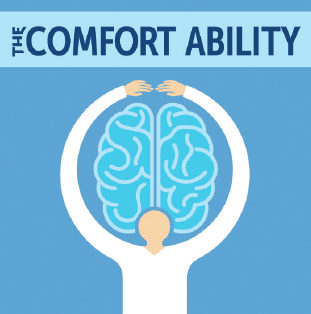The Comfort Ability for Young Adults with Chronic Pain: A Structured Six-week Program Offering Coping Strategies, Transition Preparedness, and Peer Support
 The transition from pediatric to adult health care is frequently associated with poor clinical outcomes, increased costs and low patient and family satisfaction[1]. Across pediatric specialties, over 40% of youth with chronic health conditions report that they were not well prepared for their transition1. For adolescents with chronic pain, failure to optimally support the transition to adult care may contribute to increased risk for substance abuse or dependence2 as well as longstanding physical and psychosocial burdens for family and community[3,4].
The transition from pediatric to adult health care is frequently associated with poor clinical outcomes, increased costs and low patient and family satisfaction[1]. Across pediatric specialties, over 40% of youth with chronic health conditions report that they were not well prepared for their transition1. For adolescents with chronic pain, failure to optimally support the transition to adult care may contribute to increased risk for substance abuse or dependence2 as well as longstanding physical and psychosocial burdens for family and community[3,4].
Notably, as the implementation of The Affordable Care Act (ACA) has allowed adolescents to remain on their parents’ health insurance plans until age 26, many pediatric institutions are striving to provide service for the over three million young adults included in this new public policy. As young adults face unique challenges related to their physical, cognitive, and psychosocial development[5], they require tailored interventions that address their needs.
One such intervention is Comfort Ability for Young Adults, a sixweek psychoeducation and support group for young adults with chronic pain. This group represents the first known young adult group therapy program for a chronic pain population. The program, directed by psychologists, is intended to help prepare young adults for self-management of chronic pain, increase feelings of self-efficacy, address challenges commonly associated with the transition to adult care, and provide clinician and peer-based support to young adults. The program includes a workbook inclusive of targeted pain and psychoeducation materials with structured weekly homework assignments that emphasize reinforcement of newly acquired skills. Throughout the program there is an emphasis on the positive aspects of the transfer to adult care with identified markers for readiness to initiate change.
Focus group and questionnaire feedback from this program have been very positive from a patient experience perspective. Program feasibility is currently under assessment as scheduling sessions for a young adult population with varied schedules (i.e., attending college, working, on disability) has been challenging and the pool of eligible patients remains low, as our clinic slowly transitions towards providing increased clinical care for this age group. Structured assessment is needed to determine efficacy.
Increasingly, as young adults are recognized as a vulnerable population with unique medical and psychosocial needs, pediatric psychologists are being tapped to develop and disseminate interventions that can address the current gaps in our healthcare delivery models. Collectively, our work will undoubtedly serve to reduce the unacceptable risk and morbidity currently associated with the transition from pediatric to adult healthcare systems. References are available online.
